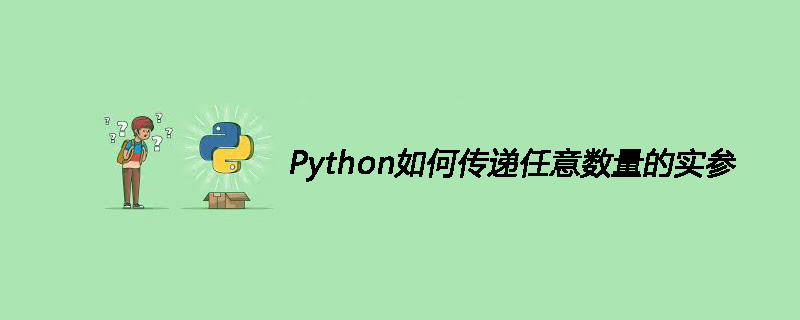Python如何传递任意数量的实参
爱喝马黛茶的安东尼
2019-07-01 10:01:473589浏览 · 0收藏 · 0评论

传递任意数量的实参
形参前加一个 * ,Python会创建一个已形参为名的空元组,将所有收到的值都放到这个元组中:
def make_pizza(*toppings):
print("\nMaking a pizza with the following toppings: ")
for topping in toppings:
print("- " + topping)
make_pizza('pepperoni')
make_pizza('mushroom', 'green peppers', 'extra cheese')不管函数收到多少实参,这种语法都管用。
1. 结合使用位置实参和任意数量实参
def make_pizza(size, *toppings):
print("\nMaking a " + str(size) + "-inch pizza with the following toppings: ")
for topping in toppings:
print("- " + topping)
make_pizza(16, 'pepperoni')
make_pizza(12, 'mushroom', 'green peppers', 'extra cheese')运行结果:
Making a 16-inch pizza with the following toppings: - pepperoni Making a 12-inch pizza with the following toppings: - mushroom - green peppers - extra cheese
相关推荐:《Python视频教程》
2. 使用任意数量的关键字实参
def build_profile(first, last, **user_info):
profile = dict()
profile['first_name'] = first
profile['last_name'] = last
for key, value in user_info.items():
profile[key] = value
return profile
user_profile = build_profile('albert', 'einstein', location='princeton', field='physic')
print(user_profile)形参**user_info中的两个星号让python创建了一个名为user_info的空字典。

关注公众号,随时随地在线学习